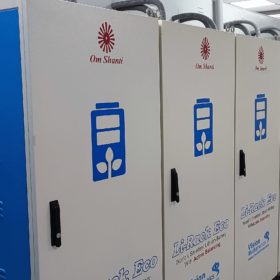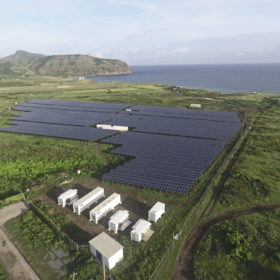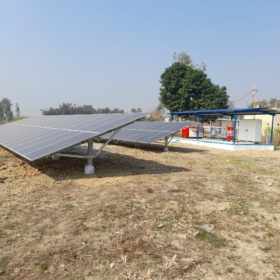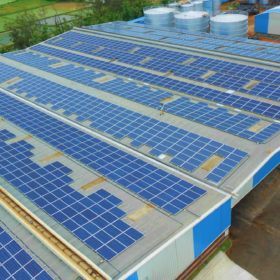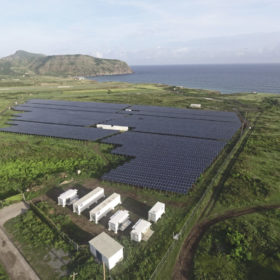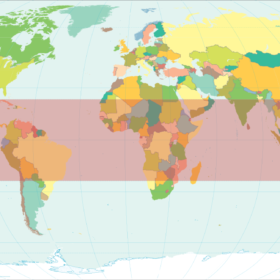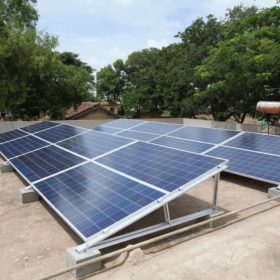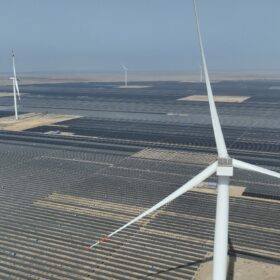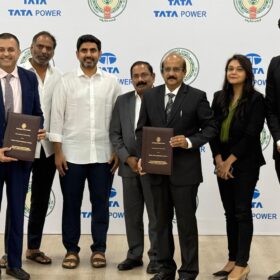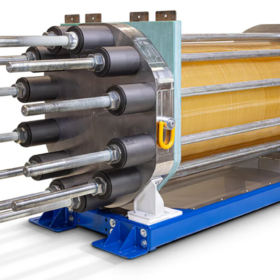India’s first solar microgrid with MW-scale hybrid energy storage
Indian manufacturer Vision Mechatronics has deployed a lithium-lead-acid hybrid battery storage system coupled with a rooftop solar plant at Om Shanti Retreat Centre (ORC) in the State of Haryana. The 1MWh storage system uses a combination of 614.4 kWh Lithium batteries with a 480kWh tubular-gel lead-acid battery.
NTPC seeks expressions of interest for hydrogen fuel cell-electrolyzers
The state-run power company wants to explore the feasibility of using hydrogen instead of diesel for back-up power and micro-grid application.
CSC partners Tata Power on installation of solar-powered microgrids and water pumps
Tata Power brings technology and financial strength to set up the distributed, small-scale solar power systems in rural areas and provide round-the-clock power supply to households and businesses. CSC brings to the partnership village-level entrepreneurs to provide quick, low-cost service support.
IFC says green recovery could drive $2.5tn renewables market this decade
The private-sector arm of the World Bank, which claims to leverage $3 of its own capital and $8 from third parties for every dollar invested in its blended finance funds, has attempted to quantify what devoting Covid recovery funds to green investment would mean for emerging economies.
New method to build microgrids based on solar, hydrogen
The use of polymer electrolyte membrane fuel cells as backup power generation in solar microgrids could drive down costs and improve efficiency, according to an international group of researchers. They have proposed a new energy management system that could be ideal for hybrid solar-hydrogen microgrids in remote locations.
NTPC invites proposals for solarization projects in ISA member countries
The selected applicants are required to execute projects across categories like solar-powered cold storage, solar water pumps, solar-powered reverse-osmosis water systems and off-grid solar systems for primary health care centers on a turnkey basis. The work includes engineering, supply, erection, commissioning along with maintenance support for three years.
Tata Power arm hits ‘100 solar microgrids’ milestone
TP Renewable Microgrid has installed an aggregate 3 MW of solar microgrid capacity with its 100th project commissioned in Ratnapur, Uttar Pradesh.
The case for distributed solar with storage
Gopal Lal Somani, a former director at the Jaipur-based Rajasthan Renewable Energy Corporation Ltd (RRECL), says distributed solar systems with storage are the key to achieving India’s mission of supplying clean energy at an affordable cost to all. In this article, he dwells on the benefits and techno-commercial feasibility of these systems for the nation.
The future of power electronics is distributed, aggregated and service oriented
IHS Markit released a white paper in which the analyst outfit shared some predictions for the power electronics market. First and foremost, inverters will become smarter, and after some power outages in key markets, these devices are gearing up to take on more grid stabilizing tasks, which hitherto had been reserved for synchronous generators.
IISc Bangalore installs solar microgrid in primary health center
The network consists of a 96 V, 5.2 kW solar power system and a 96 V, 7.5 kVA PV inverter plus 96 V, 150 Ah of lead-acid battery storage. The microgrid will provide backup power during emergencies.
